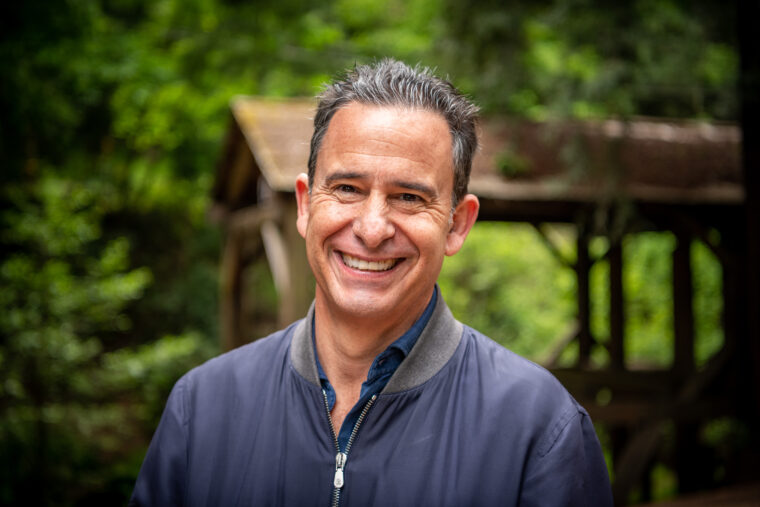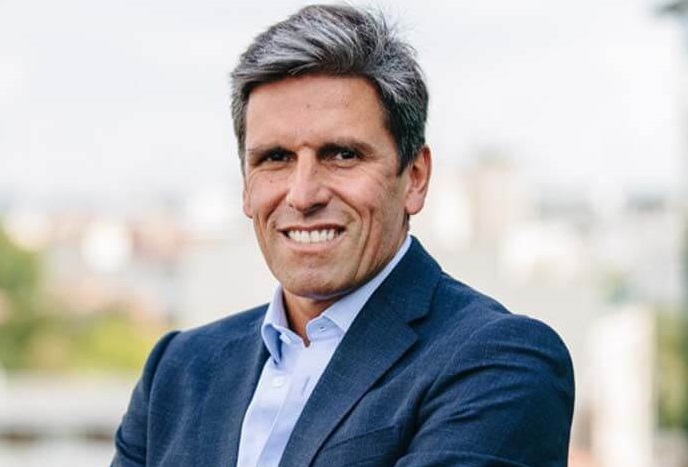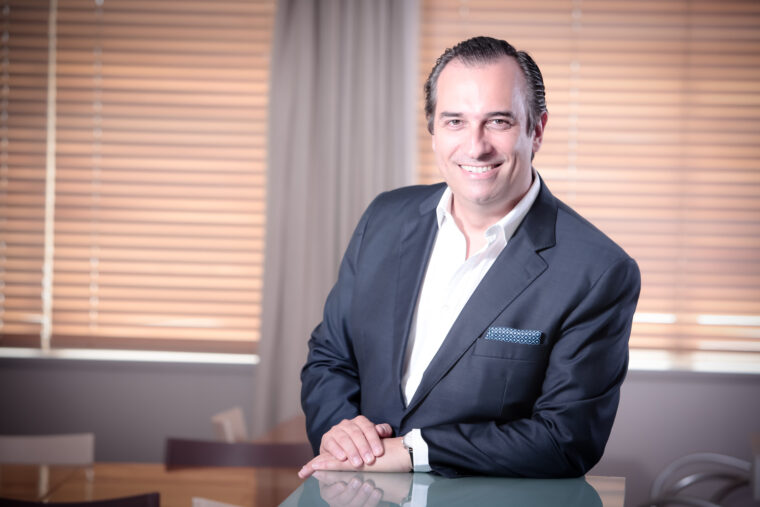Portuguese people who stand out abroad are helping to find out where business opportunities are and what kind of companies and activities the country can attract. An initiative that brings together Negócios and the Portuguese Diaspora Council.
1- What led you to leave Portugal?
I left Portugal at the beginning of 2015, when I went to the UK as CFO to take over the financial management of Banco PSA Finance, the result of a joint venture between the Stellantis Group and Santander. After fifteen years in a financial role in Portugal, I naturally decided to emigrate when I came across this exciting professional challenge.
2- What advantages or disadvantages has being Portuguese brought you?
I prefer to focus on the advantages and would highlight the ability to adapt and integrate. I think the Portuguese have this characteristic. A couple of months after landing in London, I was perfectly integrated, with an extensive networking and with all aspects of my personal and professional life organized. To this end, I must acknowledge the fundamental role played by the embassy, the consular services and the Portuguese Diaspora itself.
3- What obstacles did you have to overcome and how did you do it?
The main obstacles I had to overcome were perhaps in France, where I went in 2019, again as CFO, of the same bank, only now in its “core market” and therefore four times larger in assets. I’m referring to the language barrier and the stigma associated with Portuguese immigration to France in the 1960s and 1970s, the vast majority of whom were employed as unskilled laborers.
Overcoming the language barrier was relatively easy and quick. Although I hadn’t practiced French since secondary school, I recovered quickly, through an intensive course at the Alliance Française and daily reading of Les Echos. The stigma associated with the Portuguese immigrant took a little longer. I was in charge of a department with seventy people, almost all of them French, who wondered inwardly “Why is a Portuguese person in charge of this?”. Eventually they found the answer, but it had to be worked at every day, with determination and resilience, demonstrating technical competence as well as professional ethics and integrity, with effective communication and promoting teamwork.
In Paris, I also had the opportunity to make contact with the Diaspora and I saw that the new generations of immigrants have a higher level of literacy and more qualified jobs, so the stigma can be a priori, which will dissipate over time if we demonstrate that we can and do better.
4- What do you admire most about the country you’re in?
I’ve been in Spain since the end of 2021, working in a European role at Banco Santander’s headquarters in Madrid. Despite the 600 kilometers that separate me from Lisbon, I feel practically at home here. There are many things I like about Spain. The Mediterranean climate, with hot summers and relatively mild winters. The rich history and culture, not to mention, of course, the excellent gastronomy, where my favorites are paella, tapas and jamón ibérico. Then there’s the Spanish lifestyle, relaxed and cheerful, represented by the famous expression “La Movida” (The Move).
5- What do you admire most about your company/organization?
I’ve been with Grupo Santander since 2005, which means I admire the company. I’d start by highlighting the opportunities for growth and professional development. In 18 years, I’ve worked in 4 entities, in 4 countries, which has been an incredible opportunity for career development, facing interesting challenges in varied contexts, and also an enriching experience on a personal level, having lived in metropolises such as London, Paris and Madrid.
I would also highlight the bank’s capacity for transformation, innovation, strategic vision and management competence. In these 18 years, I have seen the bank transform itself, adapt to new realities and resiliently resist, without state aid, three different crises: the global financial crisis of 2008, the sovereign debt crisis in 2009 and more recently the pandemic crisis in 2020. Last but not least, the co-workers and company culture, which promotes values such as ethics, diversity, inclusion and respect for its employees.
6- What recommendations would you give to Portugal and its entrepreneurs and managers?
I’d like to illustrate this with a sporting episode that happened to me. When I was a teenager, I was a highly competitive swimmer, and only just missed out on the Barcelona Olympics. Faced with adversity and disappointment, I gave up swimming and didn’t exercise for fifteen years. I went from being a former athlete to a sedentary man who could barely walk up a street without losing his breath.
At the age of 36, when the scales had almost reached three digits, I decided to change my life. I set myself goals and defined a plan. By the age of 40, I would complete a marathon and then a triathlon, in the Ironman distance (3.8 km swim + 180 km bike + 42.2 km run), always helping charities.
This is my story, which I published in the book “Vontade de Ferro” (Iron Will), but it could be anyone’s story. Just as I believed that I could go further and further, faster and faster, and preferably for a cause, I would recommend that our entrepreneurs and managers also believe that their goals, their dreams, are achievable.
7- In which sectors of the country where you live can Portuguese companies find clients?
Perhaps because I have a daughter who is turning 18 and wants to study fashion and design, I’ve been looking particularly closely at this sector. Spain has one of the largest fashion groups in the world and a strong presence in this industry, with internationally known designers and brands. Portugal is renowned for the quality of its textiles and footwear, a product category that already contributes significantly to exports to Spain. However, Portuguese companies, rather than essentially acting as factories for Spanish brands, could maximize GVA through greater complementarity and integration of their production chains, improving the differentiation of their products and brands, and taking advantage of Spanish distribution and retail platforms, such as El Corte Inglés, for example.
8- In which sectors of Portugal might companies from the country you’re in want to invest?
On a personal level, I have some interests in the area of dental services, a sub-segment of the health sector, which will continue to be seen as an opportunity for expansion by the Spanish, since the Iberian NHS is under increasing pressure and it will be natural for Spanish private insurers and groups to also seek to consolidate themselves in the Portuguese market, in a logic of an Iberian health services ecosystem.
9- What competitive advantage does your country have that could be replicated in Portugal?
Portugal also has some of Spain’s competitive advantages. I’m referring, for example, to the tourism sector, which plays a fundamental role in both economies. The production of renewable energy, namely wind and solar, in which both countries have made significant investments, becoming more sustainable and less dependent on oil and gas imports. The strategic location between Western Europe and Africa, which in Portugal’s case also includes the Atlantic front, which is important for international maritime trade.
With regard to those we could replicate in Portugal, I would highlight three. The banking sector, where there should be some consolidation so that, like Spain, we have entities that are benchmarks at European level. The medical tourism sector, a concept that needs to be developed, combining excellent weather conditions and hotel infrastructures with high-quality medical facilities and experienced health professionals. Infrastructure, where we have two urgent needs: to build a definitive airport solution for Lisbon, and to complete the high-speed railroad between Lisbon and Oporto, which will then be integrated into the Iberian network via Vigo and Badajoz.
10- Are you planning to return to Portugal? Why?
Yes, of course. I’ve been moving closer, to London, Paris and now Madrid. Although I feel very comfortable here, my roots are in Lisbon. That’s where my family is. We have investments and businesses in our personal sphere that are difficult to bring to Madrid, so in due course I’ll go there. I just can’t say when…
Read the original article here.






